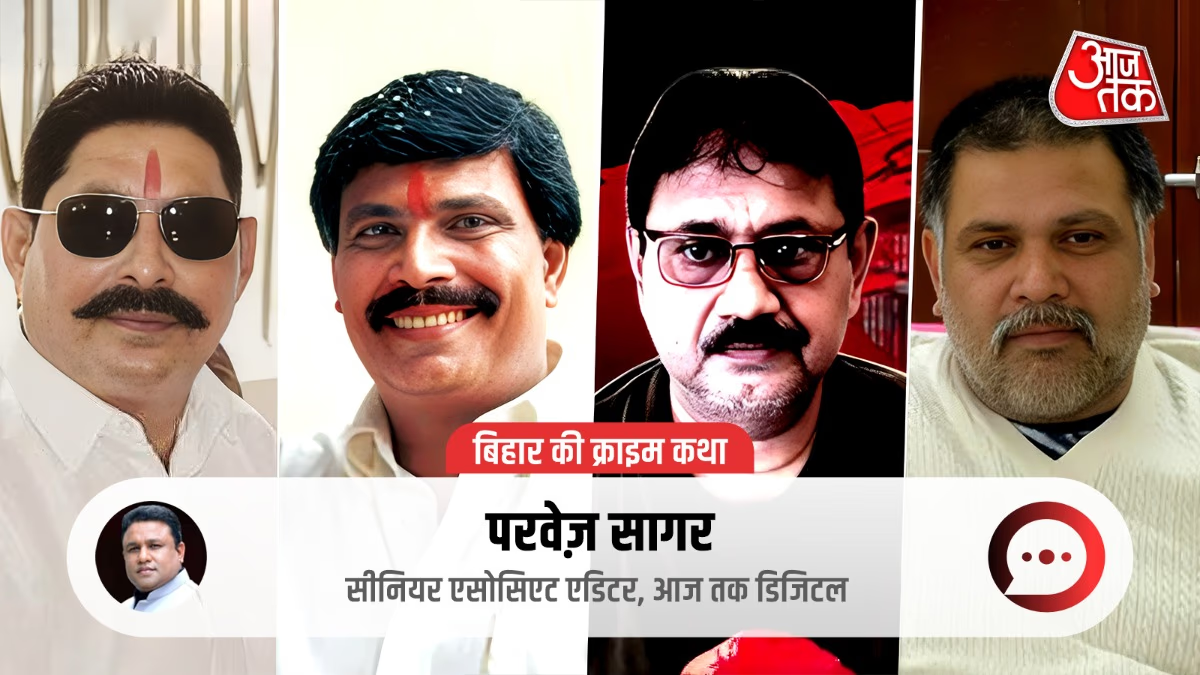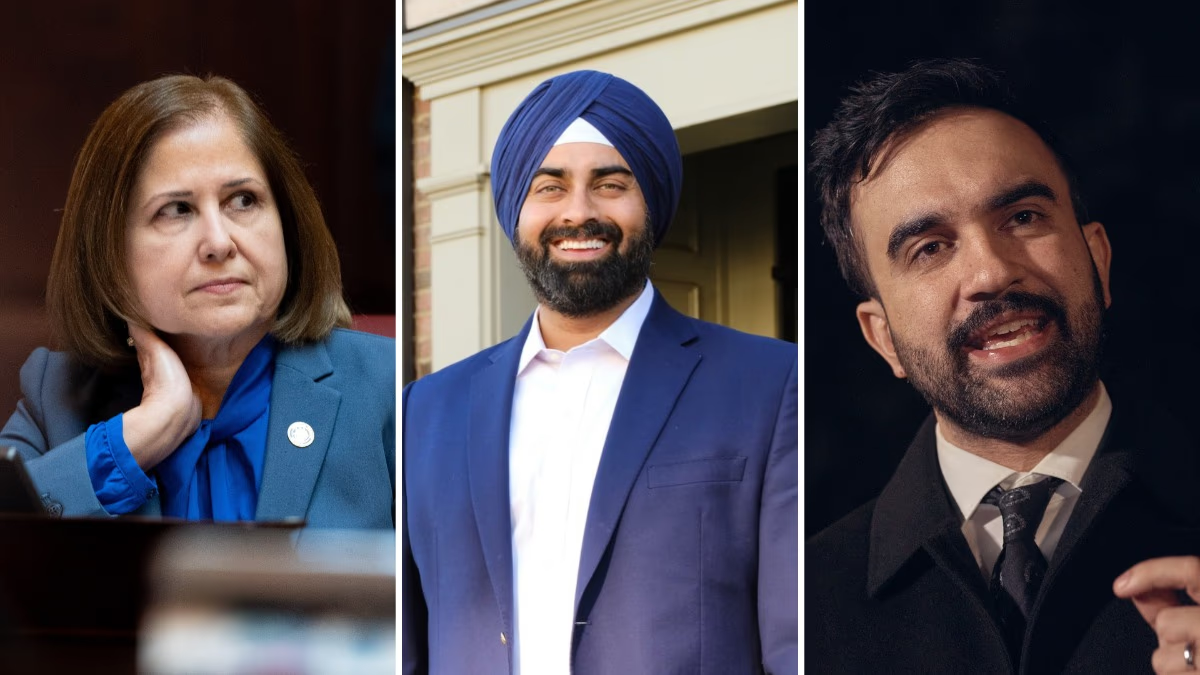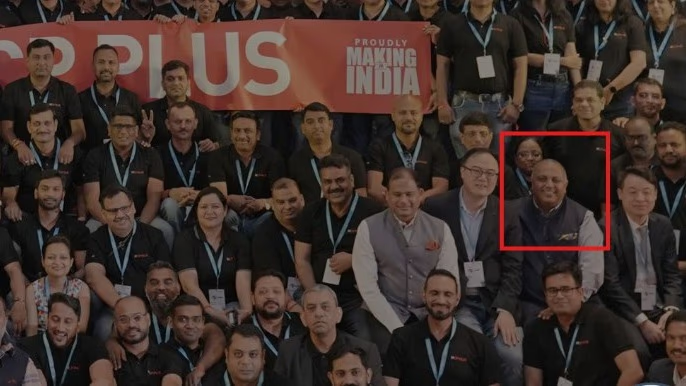Crime Saga of Bihar:
In the soil of Bihar, blood and power have always echoed, with the sound of guns reverberating through time. From 1947 to 2025, gangsters built their empires on kidnapping, murder, and political protection. Notorious figures like Kamdev Singh to Mohammad Shahabuddin wrote new definitions of lawlessness. This is their tale—an odyssey that began with booth capturing and evolved into cybercrime, etching a dark history of Bihar. In a land where criminals became legislators and legislators became criminals, we unravel the pages of this chilling 'Bihar's Crime Saga.'
1947-1950: Seeds of Crime in Newly Independent Bihar
After independence, the seeds of crime were sown in Bihar's soil amid caste dominance and economic inequality paving the way for gang wars. Post-1947 partition, minor rural disputes in places like Begusarai escalated into violent clashes amongst Bhumihar and Rajput communities. Smuggling and robberies began, with local landlords offering protection to thugs to preserve their power. Emerging criminal Kamdev Singh was symbolic of this era. Born in 1930, by 1950, he was embroiled in numerous minor crimes. Political instability at the time left the police weakened, emboldening criminals. This period marked the onset of Bihar's lawlessness, where guns began to replace the law. The first assembly elections in 1952 saw the advent of booth capturing, a method later wielded by gangsters.
1950-1960: Rise of Bihar's First Mafia Don - Kamdev Singh
In the 1950s, Kamdev Singh established his criminal empire in Begusarai, grounded in robbery, smuggling, and political violence. A Bhumihar, he spearheaded anti-communist campaigns and facilitated booth capturing for Congress. In the 1957 assembly elections, capturing 34 polling booths ensured his patron Suryug Prasad Singh's victory. Locally hailed as 'Emperor' and 'Robin Hood' for funding weddings and funerals for the poor, his ruthlessness was notorious; he crafted a smuggling network from Nepal to Kolkata. By 1960, Kamdev’s influence reached Bihar's northern districts, where he built an army of thugs. This era marked the politicalization of crime in Bihar, where gangsters became electoral muscle.
1960-1970: Political Patronage and Escalation of Crime
The 1960s saw Kamdev Singh’s empire at its zenith during Jayaprakash Narayan’s Total Revolution. His network spanned from Begusarai to Muzaffarpur, profiting from arms smuggling and robberies. Political parties started hiring him, evident when he captured 34 booths in Mathihani for the 1969 elections. Caste conflicts surged, with Bhumihar gangs targeting backward castes. Later, his son Rajkumar Singh entered politics, and ineffective policing further fueled crime. Corruption thrived as officials tipped off gangsters. By 1970, 20-30 major gangs emerged, involved in extortion and murders. This era siphoned off the rural economy through crime.
1970-1980: Kamdev Singh’s Downfall
In the 1970s, Kamdev Singh emerged as 'Bihar’s Pablo Escobar,' but in 1980, a coordinated police operation led to his death. Fleeing by the Ganges, he was shot, and his body found by the riverbank. His death left a vacuum in Bihar’s criminal world, with his henchmen forming new gangs. This period saw the rise of influential figures like Surajbhan Singh from Mokama entering politics. Despite 26 criminal cases, Surajbhan won the 2000 assembly election. Crime evolved with booth capturing giving way to kidnappings. The rise of Lalu Prasad Yadav allegedly provided political shelter to criminals, culminating in 1980s caste gangs clashing with lower caste militias.
1980-1990: The Dawn of Lawlessness
Lalu Prasad Yadav’s 1980 ascension allegedly marked the start of lawlessness in Bihar, with gangsters receiving protection. Mohammad Shahabuddin’s 1990 assembly win heralded a peak of bold criminal acts. Siwan became synonymous with kidnapping and murder. Bhumihar gangster Chhotan Shukla also rose in Muzaffarpur, and his 1994 assassination stoked caste violence. Concurrently, power figure Anand Mohan Singh established the Bihar People’s Party, fostering the kidnapping industry. Pappu Yadav formed a trigger-happy gang in Madhepura, correlating with the over 32,000 criminal cases, primarily kidnappings, recorded by 1990. Political protection rendered gangsters invincible.
1990-1995: Shahabuddin Became 'Sultan of Siwan'
By 1990, Shahabuddin won Jiradei assembly seat, aligning closely with Lalu Prasad Yadav. Siwan was his fortress, where he allegedly orchestrated a kidnapping and murder empire. Chhotan Shukla’s assassination in 1994 led to his brother Munna Shukla seeking revenge, though Shahabuddin won the 1996 Lok Sabha election. This era also saw Anand Mohan transition from Saharsa MP to expanding kidnapping operations. Although Surajbhan Singh entered politics despite 26 cases, 1995 alleged Lalu’s administration provided gangsters shelter, escalating kidnapping cases beyond 32,000 and embroiling Bihar in caste gang wars.
1995-2000: Munna Shukla's Revenge, DM’s Murder
Chhotan Shukla’s 1994 murder fueled Munna Shukla’s quest for retribution. During his brother’s funeral, an enraged mob brutally killed then-Gopalganj DM G. Krishnaiah, spurred by Anand Mohan. Despite his brother’s death, Munna remained fierce, orchestrating Minister Brij Bihari Prasad’s 1998 assassination. Shahabuddin wielded kangaroo courts in Siwan, while Pappu Yadav faced charges for CPM MLA Ajit Sarkar’s 1999 murder. Anant Singh contested from Mokama in 2000, only to lose to Surajbhan. Lawlessness saw over 200 murders during this era’s gang wars.
2000-2005: Political Dominance of Strongmen
Nitish Kumar’s 2000 government couldn’t deter gangsters’ influence. Shahabuddin perpetrated 2004’s gruesome acid attacks killing two brothers in Siwan. Infamous Munna Shukla contested the 2005 election with LJP and became an MLA. Anand Mohan’s death sentence came amidst running 2004’s Lok Sabha candidature from prison. Pappu Yadav became a Madhepura MP, while mafia don Anant Singh won Mokama. Concurrently, underworld don Bablu Srivastava dominated kidnapping rings across Bihar-UP. The infamous kidnapping industry saw exponential growth.
2005-2010: Nitish's Good Governance and Gangsters' Decline
As power shifted in Bihar, Nitish Kumar’s 2005 government targeted gangsters. Notorious Shahabuddin was arrested in 2009. Munna Shukla received a 2008 sentence for Brij Bihari’s murder. Infamous Anand Mohan remained imprisoned, while Pappu Yadav ran for office in 2009 from jail. In 2010, Anant Singh won Mokama again but faced journalists’ captivity accusations. Criminal Surajbhan Singh faced 2008 punishment for Ram Singh's murder. Don Bablu Srivastava received a 2008 life sentence. Crime rates fell, but musclemen persisted politically.
2010-2015: Revival of Strongmen and Emerging Threats
History advanced rapidly. Anant Singh won again in 2010 but entangled in Reshma Khatun’s 2013 murder. Shahabuddin's 2016 bail was rescinded by the Supreme Court. Pappu Yadav clinched 2014 elections becoming an MP. Munna Shukla absolved in 2014 by the High Court remained Anand Mohan incarcerated. Notorious Surajbhan entered politics post-2014 acquittal, while Bablu Srivastava ran prioson operations. Cybercrime emerged amidst remnants of caste-based gangs.
2015-2020: Government Challenges and Old Foes
Independent Anant Singh won his 2015 election but Covid claimed Shahabuddin in 2021. Pappu Yadav lost 2019 but contended again in 2020. Anand Mohan continued serving jail time, while Munna Shukla kept entangled in legalities by 2020. Surajbhan Singh's wife Veena Devi tested a political run, winning 2014 Munger elections. Bablu Srivastava became embroiled in 2015 kidnap charges. Despite government endeavors, organized criminal networks proliferated, prompting increased police encounters.
2020-2025: Legacy and Crime of Strongmen
Anant Singh RJD-ticketed election in 2020 succeeded, yet 2022's Arms Act case yielded a decade sentence, overturned by 2024’s High Court acquittal. Notorious Anand Mohan freedom aligned with governmental prison policies by 2023. Pappu Yadav pursued independent electoral success, becoming an MP. Munna Shukla faced 2024’s Supreme Court sentencing. Surajbhan Singh's wife contended the 2025 election. Bablu Srivastava sought judicial release, as crime converged on cyber and sand mafias, though political power persisted. Prospects for 2025 assembly elections forecast renewed gang wars.
From Caste to Cybercrime… Evolving Crime
Bihar's gangsters’ journey from caste dominance to cybercrime. Initially, 1947-1980 emphasized booth capturing, shifting to kidnapping-murder during 1990-2010, now transitioning to sand-liquor mafias. Dons like Shahabuddin fortified through political backing. Nitish’s era saw arrests escalate, legacies remained. Up to 2025, 20-30 major gangs continue influencing elections.
The Crime-Politics Nexus
Bihar's infamous gangsters criminalized politics. From Kamdev Singh to Anant Singh, they obtained political party tickets. Elections were contested and won. Lalu Prasad's RJD protected Shahabuddin; Nitish Kumar’s tenure freed notorious Anand Mohan. As 2025 elections loom, musclemen like Veena Devi and Anant Singh vie again. Such associations are seen as keys to Bihar’s power.
Legacy and Lessons
By 2025, Bihar’s gangsters economically drained the state, yet their stories offer lessons. Nitish’s governance lowered crimes, but roots remain deep. Steering youths away from crime is a formidable challenge. Truthfully, Bihar needs a fresh start.




